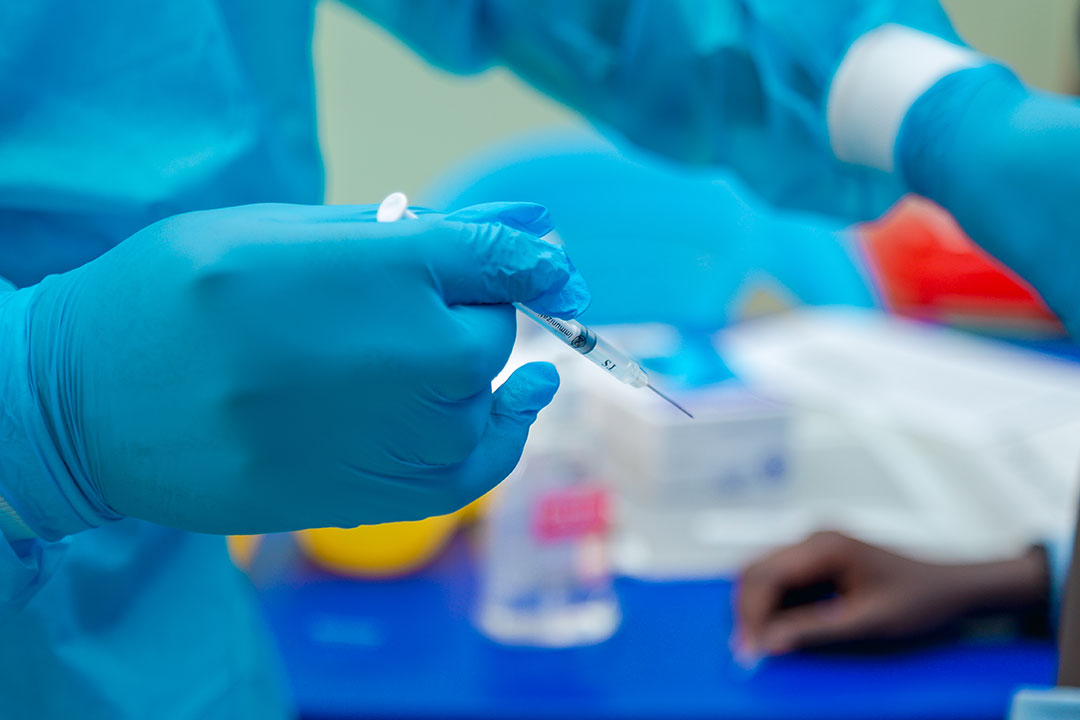"A big win-win": Vaccine sharing could protect against future COVID-19 waves
Modelling suggests that increased COVID-19 vaccine donations by wealthy nations could benefit rich and poor countries alike.
- 31 January 2022
- 3 min read
- by Linda Geddes

The moral case for ensuring everyone has access to COVID-19 vaccines is clear, but now a new modelling study suggests that wealthy countries would also benefit. Increasing the portion of COVID-19 vaccines donated from high-income countries to lower income ones could protect against new strains of SARS-CoV-2, shortening the overall length of the pandemic.
“For high-income countries, donating a small portion of vaccines to low- and middle-income countries could better lower the risk of future waves than waiting for the epidemic to be controlled in their own countries.”
As of 31 December 2021, more than nine billion doses of COVID-19 vaccine had been administered worldwide – approximately 116 doses for every 100 people – but the distribution of those doses has been highly skewed toward people in high income countries. More than 70% of people in these countries are fully vaccinated, compared to 4% in low-income countries.
Using a mathematical model, Qingpeng Zhang and colleagues at the Chinese Academy of Sciences in Beijing projected the consequences of such vaccine inequity over five years, against the backdrop of evolving strains of SARS-CoV-2 and ongoing international travel.
The research, published in Nature Human Behaviour, suggested that the strategy of trying to vaccinate everyone in certain countries at the expense of those living elsewhere is ill-conceived. Although there is a short-term benefit in terms of a reduction in deaths in the first year, as highly-vaccinated populations gradually become more vulnerable as new strains emerge, the duration of the pandemic overall increases.
Conversely, equitable vaccine allocation could substantially curb the spread of new variants, Zhang and colleagues argue. They calculated that increasing vaccine donations to 46% of total high-income countries’ vaccine supply would lead to substantial decreases in deaths in low- and middle-income countries, and would protect all countries against new SARS-CoV-2 strains and pandemic waves.
Have you read?
“Knowing the impact of global COVID-19 vaccine allocation on both low- and middle-income countries and high-income countries is crucial for controlling the COVID-19 pandemic,” they write.
“We found that, as vaccines are still limited currently, if high-income countries donate a certain portion of vaccine supplies to low- and middle-income countries instead of vaccinating their entire population as the top priority, enormous public health benefits can be seen for [everyone]. Furthermore, for high-income countries, donating a small portion of vaccines to low- and middle-income countries could better lower the risk of future waves than waiting for the epidemic to be controlled in their own countries.”
Although a third “booster” dose of vaccine improves its effectiveness, the improvement is less than that of the first vaccination, they argue. Making immediate and more generous vaccine donations “offers a big win-win for both high income countries and low- and middle-income countries”, they said.
A potential limitation of the study is that it assumed the severity of new variants always increases, whereas in reality, this may not be the case, wrote Dr Dan Yamin, an infectious disease modeller at Tel Aviv University in Israel, in an accompanying editorial. “Only time will tell whether the highly transmissible, but less virulent, Omicron variant will boost the immunity of recovered individuals, thereby protecting them against future virulent variants,” he said.
Even so, he believes far greater and more long-lasting protection against COVID-19 can be obtained through global cooperation: "Subsidising COVID-19 vaccination in low- and middle-income countries is a practically sound, moral obligation of high-income countries – and it also happens to be in their own self-interest.”







